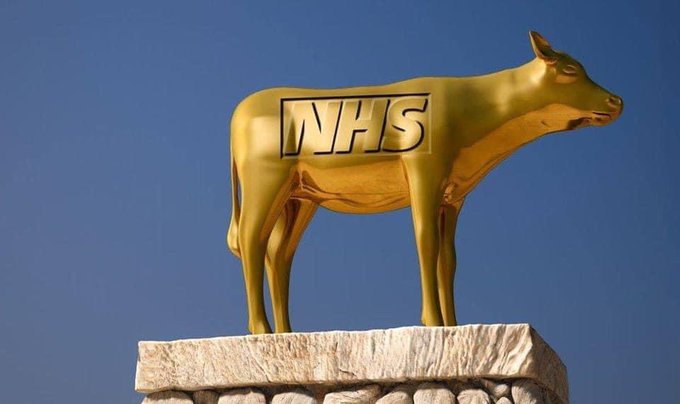When you take your sick child to the doctors or the hospital then you are putting your most precious possession into the hands of people that you should have a reasonable expectation of being trustworthy and competent. Unfortunately for a great many young patients and their parents who took their children to Great Ormond Street Hospital in London this trust appears to have been misplaced.
A recent report in The Times of London told the horrific tale of 721 young patients at Great Ormond Street orthopaedic unit whose cases are being reviewed by the hospital following concerns being raised about the competence and attitude of a surgeon at this hospital. The alleged competence issues have not only led to patients getting inappropriate or wrong treatment but which has also led at least one child to have to have a limb amputated and others to have been left in long term severe pain.
The Times said:
With his confident air, Yaser Jabbar was a reassuring presence for parents on the orthopaedic ward of Great Ormond Street Hospital.
So when the 43-year-old surgeon told the parents of a six-year-old about the leg-straightening and lengthening procedure he planned to perform on their child, he had their full trust. They were unaware Jabbar’s colleagues were concerned about his safety, and fearful he was harming children in his care.
In July 2021, Jabbar operated on the boy at the Great Ormond Street Hospital (GOSH) lower limb reconstruction service in north London, which every year performs surgery on hundreds of children with illnesses or congenital deformities.
The procedure involves surgically breaking the bone then inserting metal rings, known as Ilizarov frames, and tension wires to hold the leg in place. Over the following months, the break is slowly widened by millimetres, allowing new bone to develop and fill the gap. Jabbar performed so many of the operations, he was referred to at the hospital as “the frame guy”.
Immediately after the surgery, however, the boy’s father, who asked not to be identified, knew something was wrong. “In all of our meetings prior to my child’s surgery we were told a certain type of frame would be used to help rotation and lengthening, but when the procedure was done a completely different frame was used. We were never told why, but it seemed strange,” he said.
“After a couple of days the frame became loose and my child was in a lot of pain. You could feel the bone in his leg, which felt out of position, like it wasn’t lined up and was protruding the wrong way. We feared something was wrong but when we raised it with Mr Jabbar he was very dismissive and said it was fine.”
As the report in the Times states this was not the only child to be allegedly left in pain and difficulty by Mr Jabbar.
The Times continued:
At least one child has had a leg amputated because of complications following surgery by Jabbar. Another child is facing the threat of amputation if surgeons at other hospitals cannot save the limb. One of those harmed was just four months old at the point of surgery.
Other youngsters have been left with legs at different lengths, some by as much as 20cm. Some are living with chronic pain years after their operations and have endured multiple follow-up surgeries. Other injuries include muscle damage, nerve injuries and permanent deformities.
Jabbar stepped down from his role at GOSH last September after an 11-month sabbatical on full pay, agreed after concerns had been raised about his conduct.
When I look at this case I find myself being astonished that the concerns that were raised about Mr Jabbar were not raised or investigated much earlier than they were. After all these incidents did not occur in some back street, run down GP surgery run by incompetents, this happened in the UK’s premier children’s hospital.
Despite Great Ormond Street’s public image as being a pinnacle of knowledge and competence in paediatric medicine it appears that along with much of the NHS it has not lived up to the reputation that the hospital has with the public. No doctor or other medic is flawless or competent in all things and mistakes and misdiagnosis can happen in even the most competent medical establishments but for there to be the need to reevaluate 721 individual cases at the most well known children’s hospital in the country is extremely worrying. Why were not the queries from parents and other medics about how these children were being treated not investigated earlier and this surgeon prevented from carrying out the operations in question or at the very least be ordered to only carry out these procedures under close supervision.
That there could be so many of these cases that need to be re-examined suggests that the culture of the NHS, a culture that sees the NHS as primarily serving the needs of its staff rather than the needs of patients, has done a great deal of damage, possibly lifelong damage, to children who, along with their parents, thought that the treatment that was being offered was the best possible. The children who were allegedly poorly treated by Mr Jabbar have, like so many other Britons, been let down immensely by the NHS. They trusted the NHS and the assurances of NHS staff but were treated extremely poorly. We and our children deserve much better than we are getting from the NHS.





Yes indeed, but in highlighting instances where something has gone wrong in the NHS commentators seem to be implying that a fully privatised healthcare system would be better. This would be paid for by insurance schemes and people who couldn’t afford them or were not eligible would simply fall through the net. Some ultra conservatives may not mind this viewing people apparently too feckless to invest in their own healthcare deserving of the negative outcomes not having done so.
A principle of free market competition is that suppliers should be competitive both in pricing and delivery of services. And we can well ask who is accountable when a private healthcare supplier makes an error?
As I’ve said before it is not a binary choice between the failing NHS model and the US model which also has its faults. It should be possible to build a healthcare system that suffers from neither of the problems of the NHS or US models.
“It should be possible to build a healthcare system that suffers from neither of the problems of the NHS or US models.”
It should be, what a strange thing to say. Nearly every developed country in the world has achieved this, The UK and the US being the notable exceptions.
Odds on, also kept quiet to avoid any likelihood of the hospital being tarred as “phobic”. I’m seeing parallels with Rotherham.
Really? Tell us how you might want it to work? Before the NHS came into existance in 1948 a lot of healthcare was funded by charities and philanthropists.
We cannot return to those days and arguably many of the highest earners now do not have a comparable sense of social responsibility.
Easy. You have a mixed provider system with some facilities run by charities or by private donation, with some run by religious organisations or local authorities or private companies. The State in such as system pays for the services and this payment is underpinned by a compulsory insurance system,a type of National Insurance if you will. People should be able to buy top up insurance so that they can get small but useful things such as more plush hospital accomodation or fast track access to a GP for ostensibly non urgent things say an appointment on the next day rather than in a few days time.
The key things in my view that needs to change is to make the healthcare system more responsive to the needs of patients and remove the dangerous and debilitating issue of conflict of interest where the Govt funds healthcare but also runs it and specifies how it is run. With the NHS it’s not clinical need that determines how a patient is dealt with but a civil servant in Whitehall, that needs to stop.
Interesting suggestion, do you know of any examples of where this type of system (or something similar) has been operated.
Certainly agree with you re the NHS being past it’s sell by date.
Germany has compulsory insurance and a mixture of service providers https://en.wikipedia.org/wiki/Healthcare_in_Germany Denmark has health provision mostly provided by local government https://en.wikipedia.org/wiki/Healthcare_in_Denmark Singapore has mostly govt run hospitals but a large private sector as well. There is also compulsory insurance. Israel has compulsory insurance but also healthcare as a fundamental right and people can also top up the basic state coverage with private insurance.
In many of these countries the standards of healthcare is said to be better than that in the UK. If I fell over in the street and broke my leg I’d rather it be in Berlin or Jerusalem than in London or Newcastle. All or some aspects of the above mentioned systems might well work in the UK as a replacement for the NHS which is a 1930’s idea that is just about functioning in the 21stC
Believe New Zealand has something along those lines as well . Also, l remember another blogger (sadly deceased now) who retired to Austria a few years back being very impressed with their system which I think was also similar. Certainly our funding model could be looked at closely as should introducing genuine market forces.
Personally, l think it is asking too much of the NHS to provide all types of medical care, at all times for all people. Maybe we should looking at what can be reasonably be expected of the NHS to provide and what we should be responsible for ourselves.